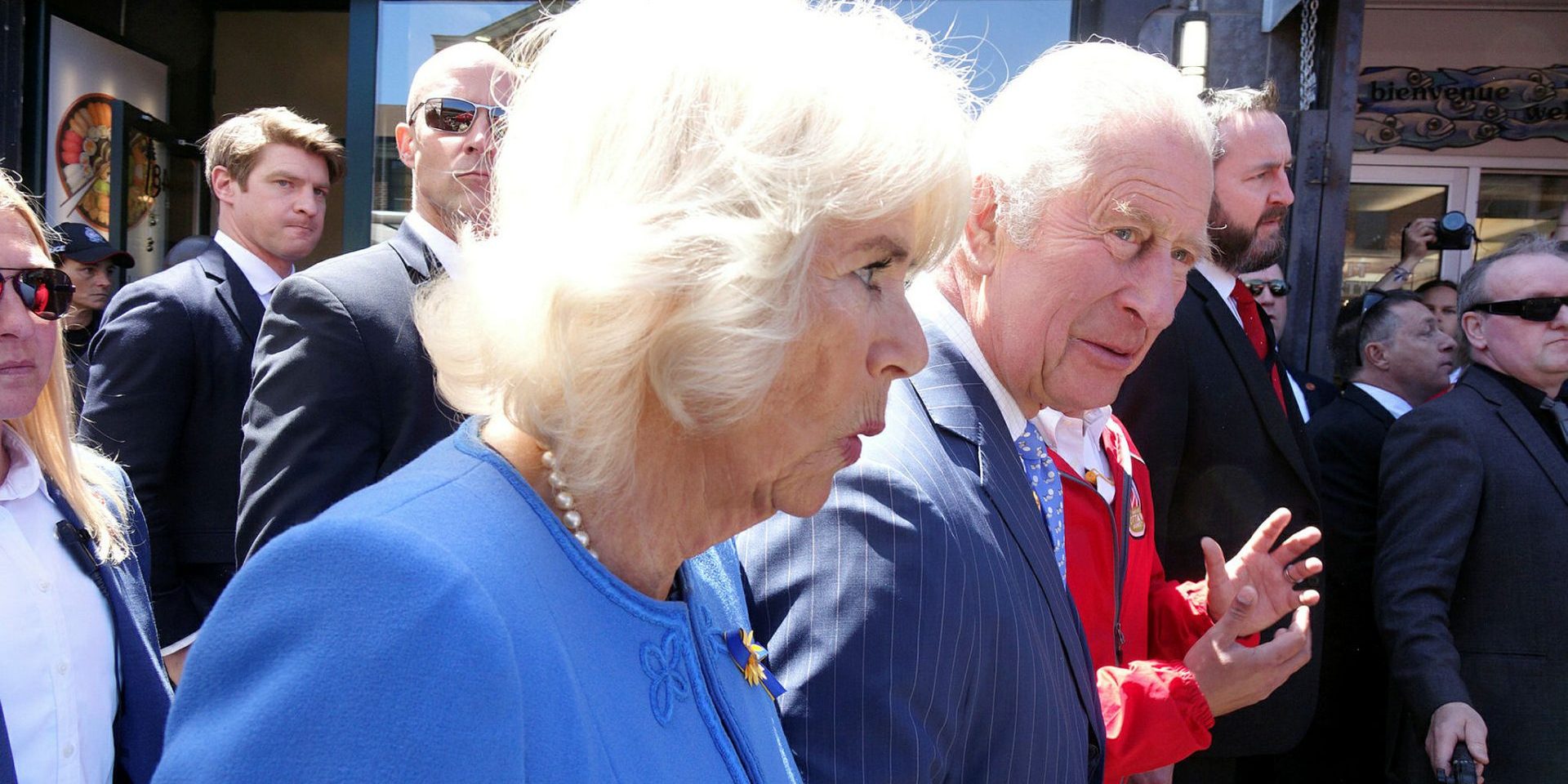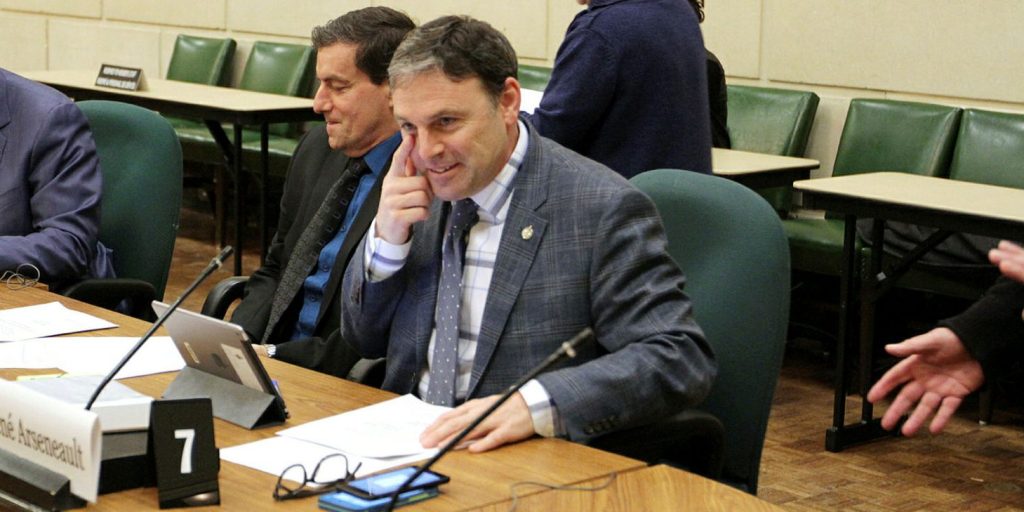Private member’s bill to make MPs’ oath to King Charles III optional could prove ‘more trouble than it’s worth’ for government

Despite growing indifference among Canadians towards the monarchy amid speculation of a visit from King Charles III later this year, a Westminster system expert said he expects a private member’s bill on making an oath to the king optional for MPs would likely be defeated to avoid a constitutional quagmire.
“What I suspect is going to happen is the Conservatives and potentially the Liberals won’t allow it to pass because it just opens up a whole bunch of problems that nobody really wants to deal with,” said Philippe Lagassé, Barton Chair at the Norman Paterson School of International Affairs at Carleton University.
Bill C-347, An Act to amend the Constitution Act, 1867 (oath of office), was introduced by Liberal MP René Arseneault (Madawaska–Restigouche, N.B.) on June 21, 2023. The bill proposes that MPs be allowed to make an oath or affirmation of office instead of, or in addition to, the oath or affirmation of allegiance.
Sec. 128 of the Constitution Act 1867 requires all MPs, Senators, and members of provincial legislatures to swear or declare an oath or affirmation of allegiance. It requires that incoming parliamentarians swear or declare that they will “be faithful and bear true allegiance” to the monarch of the day.
Arseneault’s bill would add an oath of office which could be uttered instead. Bill C-347 proposes that the MPs be allowed to swear that they will act “in the best interest of Canada while upholding its Constitution.”
A second-reading debate of the bill is currently third in the order of precedence for private members’ business when the House resumes on Jan. 29. Arseneault did not respond to a request for comment from The Hill Times, but noted during his introduction of the bill on June 21 that “the purpose of the bill is not to detract from the monarchy’s historic role in Canada, but to provide an additional option for members and senators when they are sworn in.”
King’s ascension reignites debate
The formality for MPs returned to the spotlight after the death of Queen Elizabeth II and the ascension of King Charles III to the throne in September 2022. Bloc Québécois Leader Yves-François Blanchet (Beloeil–Chambly, Que.) told the House in October 2022 in French that his “oath of allegiance to the British Crown was insincere.”
“An oath made under duress when one’s heart is not in it is meaningless,” he said. “My only allegiance is to the people of Quebec and the Quebec nation, not to the foreign king.”
A Bloc Québécois spokesperson told The Hill Times in an emailed statement on Jan. 9 that the party will vote in favour of Arseneault’s bill, “and we invite all members who are true to their democratic beliefs to do so. We consider it to be a significant progress.”
Despite the provincial requirement in the Constitution, Quebec’s National Assembly made the oath optional for its members by unilaterally exempting the province from Sec. 128 in late 2022. The law was passed unanimously not long after the Assembly convened following that year’s provincial election, after members of the Parti Québécois refused to swear allegiance to King Charles, and as such could not take their seats in the Chamber.
Blanchet moved in October 2022 for the House to “express its desire to sever ties between the Canadian State and the British monarchy, and call on the government to take the actions necessary to do so.”
The motion was defeated, 266 votes to 44. Joining all Bloc members in supporting the motion were 10 NDP MPs, Liberal MP Joël Lightbound (Louis-Hébert, Que.), Green MP Mike Morrice (Kitchener Centre, Ont.), and Independent MP Alain Rayes (Richmond–Arthabaska, Que.).
Meanwhile, a series of polls taken shortly before the coronation of King Charles on May 6, 2023, found a high degree of indifference or negativity toward the monarchy and its role in Canada. An Abacus Data poll at the time found approximately 36 per cent of respondents had a neutral impression of the king, with 33 per cent holding negative views and 18 per cent positive.
The poll also asked whether Canada should continue to have a monarch as head of state: 52 per cent were against the idea, 30 per cent were in favour, and 18 per cent did not care either way. British tabloids have speculated that King Charles might visit Canada this spring, but neither Buckingham Palace, nor the Canadian government have officially confirmed the trip.
‘Anachronism’ versus modern divides

Lagassé said the Constitution’s wording refers to the Crown as the person who personifies the state and authority, and was not intended at the time it was written to be seen as simply swearing allegiance to the individual occupying the role of monarch.
“We’re [currently] more used to citizenship and that kind of concept as our relationship with the state, but this goes back to an era in which the relationship was one of the subject owing allegiance to the sovereign authority,” he said. “It makes sense within the Houses of Parliament that holders of public office and members of the legislature owe allegiance to the state and allegiance to the sovereign.”
Of the 15 countries in which King Charles III is head of state, only five do not require that elected officials swear an oath or make an affirmation of allegiance to the monarch.
Jamaica amended the parliamentarians’ oath in 2002 to instead swear allegiance to the country rather than the Crown. It followed a similar move by Belize in 2000, and preceded Saint Lucia’s abolition of the requirement in 2003, and Saint Vincent and the Grenadines in 2016.
Papua New Guinea has retained an oath of allegiance to the monarch, but does not require MPs to swear it before taking their seats. Parliamentarians are instead required to make declarations of loyalty and oaths of office to the country, its people, and Constitution.
Tuvalu, meanwhile, requires an oath of allegiance to the monarch, but not directly by name; instead, the wording of the current oath is to the “Sovereign of Tuvalu.”
In many of the remaining countries, the oath or affirmation of allegiance has been contentious among some republican, nationalist, and Indigenous parliamentarians.
In the United Kingdom House of Commons, Irish republican party Sinn Féin contests constituencies in Northern Ireland, but MPs refuse to take their seats in Westminister if elected. The deliberate abstentions, which have been a fixture of the party for more than a century, are due in part to the need for MPs to swear an oath of allegiance to the British monarch.
Lagassé said that, even if the wording of the Canadian oath were changed, a new pledge of loyalty could be just as contentious as the existing requirement. He said Canada was not as unified as smaller realms, and that the “anachronism” of the oath in part “covers over a series of deeper political disagreements about the nature of Canada today.”
“If a Bloc MP, for instance, doesn’t want to pledge loyalty to the sovereign or the king, would they be more comfortable doing so to the people of Canada? Would they be more comfortable doing so to the Canadian state?” he said. “It’s the same for many other groups who may say, ‘well, I don’t want to do that, either.’”
That contention has been borne out in other nations with a fractious history between the Crown and Indigenous Peoples, where some MPs have made an alternative declaration before the official oath of allegiance.
Following last year’s New Zealand general election, all six MPs from Te Pāti Māori first pledged allegiance to their grandchildren and the Treaty of Waitangi, an 1840 agreement between the Crown and more than 500 Māori chiefs which is considered to be the country’s foundational document. The MPs then recited the oaths or affirmations of allegiance to Charles.
In neighbouring Australia, Indigenous Senator Lidia Thorpe was forced to redo her oath in August 2022 after she added a descriptor of “the colonizing” Queen Elizabeth II.
At the sub-national level, Australian state and territory legislatures also require an oath or affirmation of loyalty to the monarch, with the exception of New South Wales, Western Australia, and the Australian Capital Territory. In those three, the allegiance oath is optional, and can be replaced with a pledge of loyalty to the people of the respective jurisdiction.
Making such a change in Canada, however, is far more difficult, said Lagassé. It was not clear whether a private member’s bill would be sufficient to change that section of the Constitution, he said. Even regarding it as a Section 44 amendment—which gives Parliament the right to make changes to the Constitution related to the executive government, Senate, or House of Commons—would be contentious, he said.
“For myriad reasons, the government—and the Prime Minister has hinted at it—this is not the kind of conversation he wants to have,” Lagassé said. “It’s way more trouble than it’s worth.”
The other issue stemmed from the similar move made by Quebec’s National Assembly which has not yet been subject to a legal challenge. If the federal bill were challenged, it would have implications for the provincial change, he said.
At the time of the National Assembly’s passage of the bill, Prime Minister Justin Trudeau (Papineau, Que.) said members of that legislature could pass a bill to remove the oath of office if they wished, but that “there is no Quebecer who wants the Constitution to be reopened.”
Following Quebec’s lead and assuming that a private member’s bill could change the constitution would create further problems, Lagassé said.
“If nobody says anything, is it sufficient? Does it put in this other oath?” he said. “I think the problem, of course, is that this is effectively a form of constitutional violence to pretend that you’re acting correctly and not abiding by the necessary laws and procedures.”
Controversy over the oath emerged in 1990 after then-new MP Gilles Duceppe followed up his oath by three weeks later swearing his loyalty to the Quebec people and to the pursuit of Quebec sovereignty at an event in Gatineau.
Then-Liberal MP Jesse Flis rose on a point of privilege about the controversy, while Duceppe clarified his remarks by stating that he “never mocked the Canadian Parliament nor the Queen. I swore the oath of allegiance with all due regard for the democratic institution that the Canadian Parliament is.”
Then-Speaker John Fraser ultimately determined that those in his position were “not empowered to make a judgment on the circumstances or the sincerity with which a duly elected Member takes the oath of allegiance. The significance of the oath to each Member is a matter of conscience and so it must remain.”
“Whatever construction the media has put on the situation, whatever the perception or misperception of the events of Sept. 23, it is a fundamental principle and long-established convention of the House to accept as true the word of an honourable Member,” Fraser said at the time.
sjeffery@hilltimes.com
The Hill Times
The oath of allegiance
“I, [insert name here], do swear, that I will be faithful and bear true allegiance to His Majesty King Charles the Third.”
The affirmation of allegiance
“I, [insert name here], do solemnly, sincerely, and truly declare and affirm that I will be faithful and bear true allegiance to His Majesty King Charles the Third.”
Countries that require MPs to swear/affirm allegiance
Canada, Antigua and Barbuda, Australia, Bahamas, Grenada, New Zealand, Saint Kitts and Nevis, Solomon Islands, Tuvalu, United Kingdom
Countries that do not require MPs to swear/affirm allegiance to the monarch
Belize, Jamaica, Papua New Guinea, Saint Lucia, Saint Vincent and the Grenadines





 LICENSING
LICENSING PODCAST
PODCAST ALERTS
ALERTS













